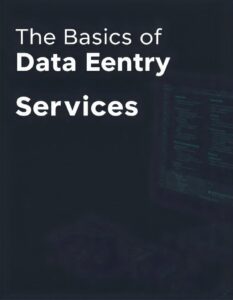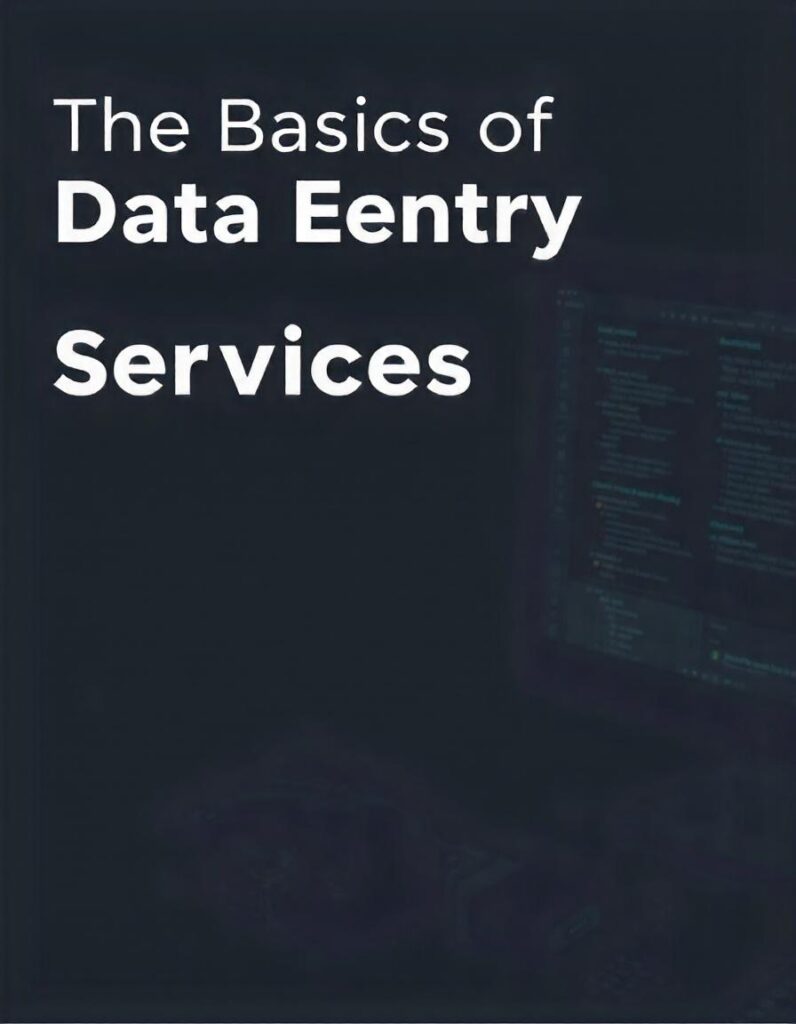The Basics of Data Entry Services
The Basics of Data Entry Services:
Data entry services involve the process of inputting, updating, or managing data within various systems or databases. This can include converting data from physical formats (like paper documents) into digital formats, entering data into software applications, or organizing and maintaining data to ensure accuracy and accessibility. Here’s a breakdown of the basics:
Types of Data Entry Services:
Manual Data Entry:
- Involves typing data from physical documents into digital forms or spreadsheets.
- Common for converting printed records into electronic format.
Online Data Entry:
- Encompasses entering data into online systems or web-based applications.
- Often used for e-commerce sites, online databases, and content management systems.
Data Conversion:
- Converting data from one format to another, such as from PDF to Excel or XML.
- Includes digitizing handwritten notes or scanned documents.
Data Processing:
- Involves handling data through various processing tasks, such as sorting, filtering, and aggregating.
- Often used for generating reports or summaries from raw data.
Data Verification and Validation:
- Ensuring that the data entered is accurate and consistent with the source.
- Includes correcting errors and updating outdated information.
Database Management:
- Maintaining and organizing data within a database system.
- Includes tasks like data cleaning, indexing, and ensuring data integrity.
Key Components:
Accuracy:
- Essential for ensuring data integrity. Mistakes in data entry can lead to incorrect analysis and decision-making.
- Speed: Efficient data entry services aim to process large volumes of data quickly while maintaining accuracy.
Confidentiality:
- Handling sensitive information requires adherence to privacy and security protocols to protect data from unauthorized access.
Software Tools:
- Data entry often involves using specialized software such as Microsoft Excel, CRM systems, or custom-built databases.
Quality Assurance:
- Includes double-checking entries, using automated tools for error detection, and implementing validation rules.
Benefits of Data Entry Services:
Efficiency:
- Streamlines data management tasks, saving time and resources for businesses.
Accuracy:
- Professional services help reduce errors and ensure data is entered correctly.
Cost-Effectiveness:
- Outsourcing data entry can be more economical than handling it in-house, particularly for small to medium-sized enterprises.
Focus:
- Allows businesses to concentrate on core activities by delegating data-related tasks to specialists.
Scalability:
- Services can be scaled up or down based on the volume of data and business needs.
Choosing a Data Entry Service:
- Experience: Look for providers with a proven track record and expertise in your industry.
- Technology: Ensure they use up-to-date tools and technologies.
- Security: Verify their data protection measures and compliance with relevant regulations.
- Cost: Evaluate their pricing structure and ensure it fits within your budget.
- Reviews: Check customer feedback and references to gauge the quality of their service.
Understanding these basics can help you make informed decisions whether you’re looking to outsource data entry tasks or set up an internal data management system.

We are also on Facebook
Go back to home page: www.mistyinfotech.com
If you want to Direct Data Entry Projects with Company with Us Please go here: Direct Data Entry Projects with Company







